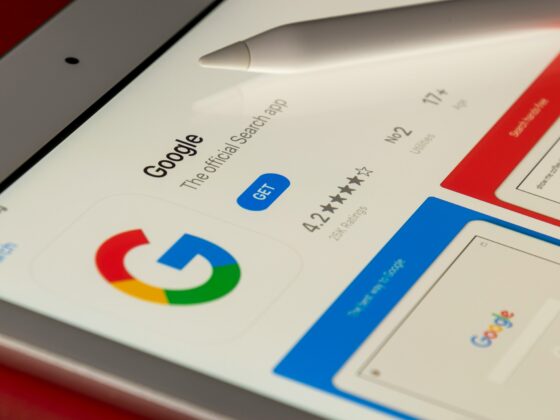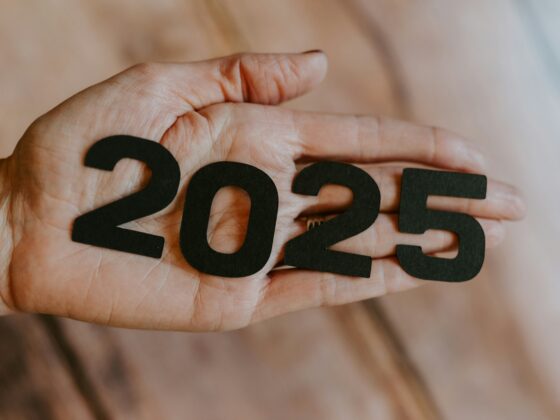
Let’s get real for a moment.
Automation. Guest experience. Direct bookings. Revenue strategies. Everyone’s talking about how AI can revolutionize hospitality, and for good reasons. But when does the conversation shift to AI security? Crickets. Eyes glaze. The energy dips.
Why?
Because AI security isn’t sexy. It’s not what makes headlines or sparks social shares. But let me tell you something I’ve learned the hard way, working with some complex security projects.
🚨 If you don’t treat AI security like your most urgent priority, your “innovation” might just be your biggest liability.
Hotels are racing to implement AI for marketing, guest service, and personalization, but too many are skipping the critical step of locking down the digital front door. That’s like investing in a five-star experience and leaving your guestroom doors wide open.
And no, a basic firewall or a once-a-year audit isn’t going to cut it anymore.
Let’s dive into the truth you need to face, and how to flip that truth into your greatest competitive advantage.
Why Hotels Aren’t Taking AI Security Seriously Enough (Yet)
Here’s the raw truth: many hoteliers still treat security as an IT (Information Technology) problem, a backend issue delegated to one person or one department.
❌ “Our PMS (Property Management System) is encrypted, so we’re good.” ❌ “Our vendor handles security.” ❌ “We’re not big enough to be a target.”
Let me challenge that thinking: If you have guest data, you’re a target. Period.
Your hotel runs on trust. And with AI becoming your concierge, your marketing brain, your booking engine, and maybe even your housekeeper, you’re plugging into systems that amplify both your capabilities and your vulnerabilities.
AI doesn’t replace your people, but it does introduce new forms of data flow, storage, prediction, and decision-making. All of this must be managed securely, or it can lead to devastating consequences.
The Wake-Up Call: What’s Really at Risk?
Here’s a quick pulse check. If any of this makes you squirm, it’s time to act:
- Do you know where all your guest data lives? (Across your PMS, CRM (Customer Relationship Management) system, Wi-Fi logs, and personalization engines?)
- Can you guarantee your AI vendor encrypts data at rest and in transit using AES-256 (Advanced Encryption Standard – 256-bit) and TLS 1.2+ (Transport Layer Security)?
- If a breach happens today, do you have a clear response playbook with roles and timelines?
- Have your team members ever been trained on AI-specific threats, like prompt injections or AI-generated phishing?
If you answered “no” to any of these… breathe. You’re not alone.
But now’s the time to move. And I’m not talking about fear; I’m talking about future readiness.
Why Security Must Be User-Friendly, and Human-Centered
Let me share something personal.
I’ve been on the inside of a team that implemented a brand-new hotel computer system and renewed infrastructure from the ground up. Security was front and center. We had good intentions. Strong policies. Expert oversight. But do you know what happened?
We overcomplicated it. Made it too rigid. Too technical. Too “perfect on paper.”
And the result?
Confusion. Resistance. Workarounds. Missed alerts. Broken processes.
That experience taught me something I’ve carried ever since:
“When security is too hard to use, people stop using it. When it’s too strict, people go around it.”
Security that alienates your team defeats its purpose.
And this is exactly why I’m so passionate about building security allies, not security enemies.
You want your front desk team, your housekeepers, your revenue managers, all of them, to become co-owners of your security posture, not passive bystanders.
The fastest way to do that?
👉 Involve them early. Empower them often. Train them well. Recognize their concerns. Make it usable.
OpenAI’s Commitment to AI Safety and Transparency
In tandem with internal efforts, it’s reassuring to see industry leaders like OpenAI taking significant strides to enhance AI safety and transparency. OpenAI has launched a Safety Evaluations Hub, a platform that publicly shares how its models perform on critical safety evaluations.
These evaluations assess models on their ability to resist harmful content generation, susceptibility to jailbreaks (attempts to bypass safety protocols), and the accuracy of their responses to prevent hallucinations (factual inaccuracies). By openly sharing these metrics, OpenAI not only holds itself accountable but also sets a precedent for the industry, promoting a culture of transparency and continuous improvement in AI safety.
AI Champions: Your Secret Weapon for Sustainable Security
You’ve heard me say this before:
“AI won’t replace hospitality; it will redefine it.”
But for that redefinition to succeed, you need more than systems. You need people.
Specifically, you need what I call AI Champions, your internal trailblazers. These are team members who bridge the gap between tech and trust, between code and culture.
What Do AI Champions Do?
- Identify friction between policy and practice before it leads to non-compliance.
- Educate teams on secure AI use across departments.
- Implement manageable protocols (like MFA (Multi-factor authentication), and secure passwords) in everyday workflows.
- Monitor for risks and report roadblocks honestly, without fear.
- Inspire cross-departmental ownership of secure systems and habits.
Your Champions are not security guards. They are security guides, helping others navigate a fast-changing terrain without getting lost.
And if you don’t have someone like this yet?
📣 That’s where I come in. I help you identify, coach, and elevate your first AI Champions—so they don’t just understand AI security, but champion it in your hotel’s culture.
Security Isn’t One-and-Done, It’s Ongoing
Let’s bust another myth: AI security isn’t a checklist. It’s a living, breathing system that evolves as fast as the tech itself.
Think about it like housekeeping: you don’t just clean a suite once and call it done for the year, right?
You need to:
✅ Audit your data quarterly ✅ Test your breach plan bi-annually ✅ Run phishing drills monthly ✅ Review vendor compliance regularly ✅ Rotate logs and encrypt data consistently
This is why in my Free Hotel AI Security Blueprint, I include ready-to-deploy templates for:
- Data Inventory (what you collect, where, why, and how long)
- Privacy-By-Design Checklist (guest-first, consent-rich systems)
- Vendor Audit Script (ask the tough questions before you sign)
- Technical Controls (MFA (Multi-factor authentication), SIEM (Security Information and Event Management), and Zero-Trust network segmentation)
- Team Training Drills (so staff don’t panic, they pivot)
- Breach Response Flow (from alert to action, with clear roles)
📄 Haven’t seen the Hotel AI Security Blueprint yet? No worries, send me a DM and I will send it your way.
Pain Points I Hear from Hoteliers All the Time
Let’s tackle some of the most common objections:
1. “We’re not a tech company.”
Exactly. That’s why you need human-centered systems, built for usability, not complexity.
2. “Our AI vendor handles that.”
Great. But have you reviewed their SOC 2 (Service Organization Control Type 2) reports? Their GDPR (General Data Protection Regulation) and CCPA (California Consumer Privacy Act) compliance? They breach the SLA (Service Level Agreement)?
Are the AI vendors familiar with the EU (European Union) AI Act? The EU AI Act, the world’s first comprehensive law regulating artificial intelligence, has a direct impact on hotels operating in or serving guests from the European Union.
If not, you’re building trust on assumptions.
3. “This sounds expensive.”
What’s expensive is downtime, lawsuits, and brand damage. Proactive beats reactive. Always.
4. “Our team is too small.”
That’s why you have appointed AI Champions. One well-trained champion beats a dozen overwhelmed staff.
Top Tips for AI Security-Ready Hotels
Here’s what I always recommend to hotels serious about creating a secure, AI-powered culture:
1. Start With a Security-First Mindset
Security isn’t just about tech, it’s about trust. Culture. Mindset.
2. Appoint or become an AI Champion
Even one person makes a difference. Start small. Grow deep.
3. Train for Reality, Not Perfection
Use phishing drills. Simulate AI attacks. Make training fun and real.
4. Audit Quarterly, Improve Continuously
Security isn’t a one-time project; it’s a way of operating.
5. Build Bridges, Not Walls
Make security part of the conversation, not a roadblock.
Ready for the Next Step?
Whether you’re just starting to explore AI or you’re rolling out your third AI pilot, I’ll help you secure it, without slowing your momentum.
Let’s have a real conversation.
📍 Schedule your free 60-minute AI Security Consultation with me. We’ll uncover your vulnerabilities, tailor your Blueprint, and map out the next steps. Most importantly, we’ll find your first AI Champions, together.
👉 Book now at https://aremorch.com/contact/
Final Thought: From Fear to Empowerment
AI security isn’t about fear. It’s about freedom.
Because when you can trust your tech, your team, and your data, you serve guests not just faster, but better.
And better means loyalty. Revenue. Reputation.
So let’s make AI security not just a department, but a culture.
Let’s stop treating it like a nuisance and start treating it like your hotel’s unseen superpower.
Let’s INSPIRE a safer, smarter future, together.









